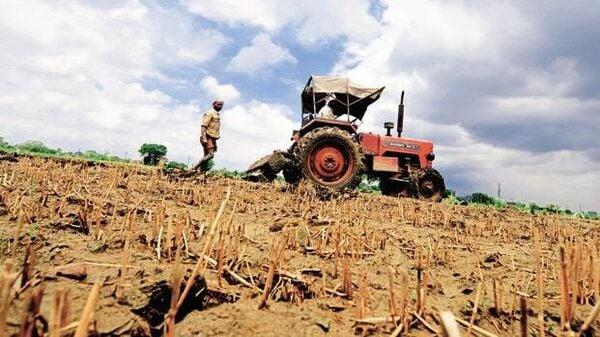
NCCF Launches First-Ever Assured Buyback Farming For Pulses In Tribal Areas To Boost Production
In a first-of-its-kind initiative, the National Cooperative Consumers Federation (NCCF), which operates under the Ministry of Consumer Affairs, has enlisted a total of 209 farmers in Jharkhand and 15 farmers in Tamil Nadu for assured buy back farming, said Anice Joseph Chandra, managing director of the NCCF, on the sidelines of the launch of subsidized onions on Thursday.
Also read |Paddy, pulses and millet sowing area expands to 108.7 million hectares
Under the scheme the government will buy the entire produce. The total area designated for the cultivation of tur and urad under this contract farming with NCCF is 1,259 acres.
"More farmers are also expected to join us for contract farming of pulses. We are also engaging farmers for the cultivation of Bengal gram (black gram), green gram, masoor, and moong," Chandra said, adding we have distributed quality seeds to farmers.
Self-reliance by 2027The government has set a target to make India self-reliant in pulses by 2027.
However, the production of pulses has continued to decline, from 27.3 million tonnes in FY22 to 26 million tonnes in FY23 and 24.5 million tonnes in FY24, according to data from the Ministry of Agriculture.
Interestingly, over the last 5 years, India produced the highest amount of 27.3 million tonnes of pulses in FY22 and the lowest of 23 million tonnes in FY20, the data showed.
The production of kharif pulses has witnessed a declining trend, dropping from 8.2 million tonnes in FY22 to 76.21 lakh tonnes in FY23, and further to 6.8 mt in FY24, the agriculture ministry data showed.
Also read |Subsidies and MSP:It makes most sense for farmers to keep growing rice and wheat
With an annual consumption estimate of about 27 million tonnes, dependence on imports is imminent. Pulse import receipts totaled 2.99
mt in CY23, an increase of 44% from 2.01 mt in CY22. As of July CY24, India has imported 1.4 mtof pulses to meet domestic consumption demand.
"The NCCF is in the process of analyzing the estimated yield from the contract farming," the NCCF MD told Mint.
While talking to Mint recently, chairman of the India Pulses and Grains Association (IPGA) Bimal Kothari had said that the yield isn't enough to keep up with demand.
Growing requirement"India will require 40 million tonnes of pulses by 2030 due to the increasing population, but our production has not kept pace and dropped to 24.5 million tonnes last fiscal. The government needs to take corrective measures, such as encouraging crop diversification from rainfed to irrigated areas and extending subsidies to pulse farmers," Kothari had said.
However, contrary to Kothari's estimates, the Ministry of Consumer Affairs, Food, and Public Distribution, in a written reply to a question in Lok Sabha on 22 March 2022, stated that according to a report by the Niti Aayog Working Group on Demand and Supply Projections Towards 2033, the demand for pulses is projected to increase from 26.72 MT in FY2021-22 to 32.64 MT in FY2029-30.
Also read |Pulse of a nation: Of daal and strained international relation
The Centre has already declared that it will procure all pulses at the minimum support price.
The government has set the MSP at ₹8,682 per quintal for moong, ₹7,550 per quintal for tur/arhar, and ₹7,400 per quintal for urad for the kharif crop season 2024-25. The season starts in June 2024 and ends in October 2025.
India's retail inflation rate, based on the Consumer Price Index, eased to 3.54% in July, the lowest level in 59 months, according to data from the ministry of statistics and programme implementation. Legal Disclaimer:
MENAFN provides the
information “as is” without warranty of any kind. We do not accept
any responsibility or liability for the accuracy, content, images,
videos, licenses, completeness, legality, or reliability of the information
contained in this article. If you have any complaints or copyright
issues related to this article, kindly contact the provider above.


















Comments
No comment